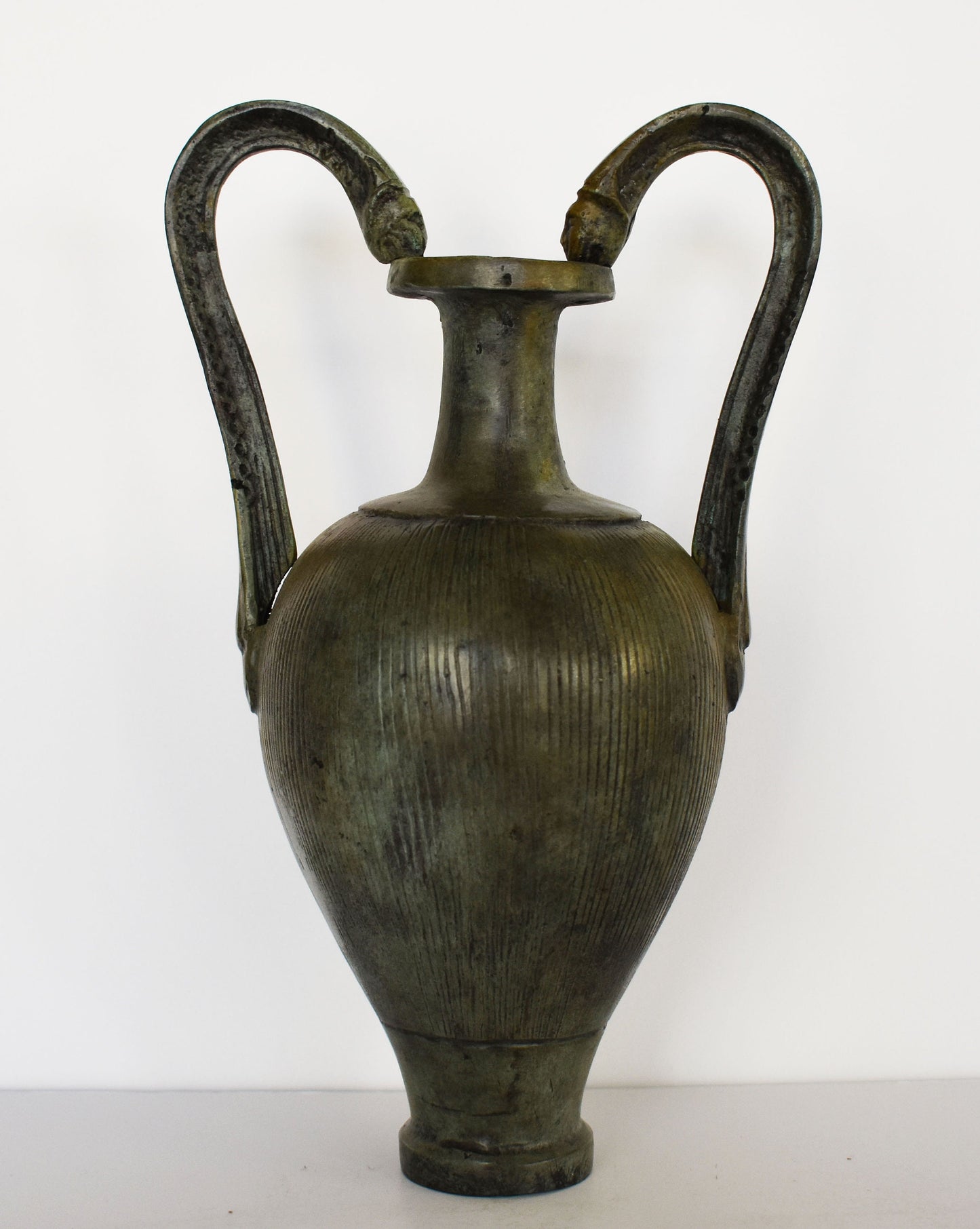Gallery Demeter
Ancient Greek Macedonian Vase - Hellenistic Period - Museum Reproduction - Pure Bronze Artifact
Ancient Greek Macedonian Vase - Hellenistic Period - Museum Reproduction - Pure Bronze Artifact
Regular price
€329,90 EUR
Regular price
Sale price
€329,90 EUR
Unit price
per
Tax included.
Shipping calculated at checkout.
Couldn't load pickup availability
Item Specifics
Condition: New, Made in Greece.
Material: Pure Bronze
Height: 25 cm - 9,8 inches
Width: 15 cm - 5,9 inches
Length: 11 cm - 4,3 inches
Weight: 1850 g
Macedonia , also called Macedon , was an ancient kingdom on the periphery of Archaic and Classical Greece, and later the dominant state of Hellenistic Greece. The kingdom was founded and initially ruled by the royal Argead dynasty, which was followed by the Antipatrid and Antigonid dynasties. Home to the ancient Macedonians, the earliest kingdom was centered on the northeastern part of the Greek peninsula, and bordered by Epirus to the west, Paeonia to the north, Thrace to the east and Thessaly to the south.
Before the 4th century BC, Macedonia was a small kingdom outside of the area dominated by the great city-states of Athens, Sparta and Thebes, and briefly subordinate to Achaemenid Persia. During the reign of the Argead king Philip II (359–336 BC), Macedonia subdued mainland Greece and the Thracian Odrysian kingdom through conquest and diplomacy. With a reformed army containing phalanxes wielding the sarissa pike, Philip II defeated the old powers of Athens and Thebes in the Battle of Chaeronea in 338 BC. Philip II's son Alexander the Great, leading a federation of Greek states, accomplished his father's objective of commanding the whole of Greece when he destroyed Thebes after the city revolted. During Alexander's subsequent campaign of conquest, he overthrew the Achaemenid Empire and conquered territory that stretched as far as the Indus River. For a brief period, his empire was the most powerful in the world – the definitive Hellenistic state, inaugurating the transition to a new period of Ancient Greek civilization. Greek arts and literature flourished in the new conquered lands and advances in philosophy, engineering, and science spread throughout much of the ancient world. Of particular importance were the contributions of Aristotle, tutor to Alexander, whose writings became a keystone of Western philosophy.









